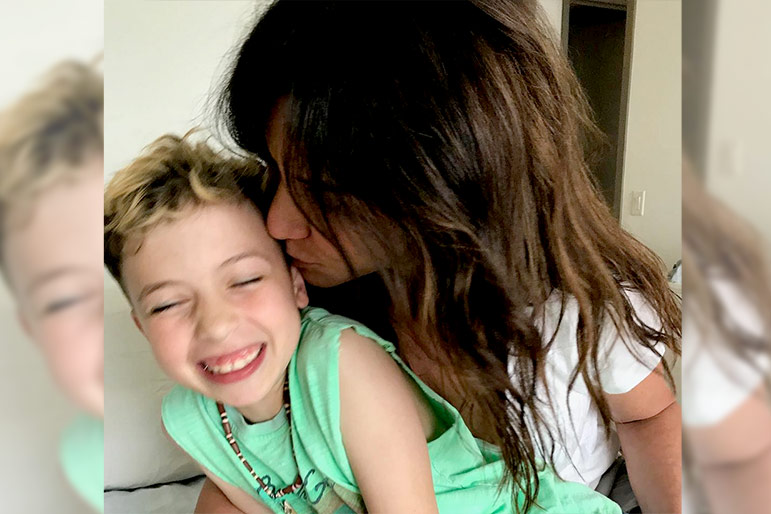How Parents (and Others) Can Better Support Transgender Children, According to a Therapist
Most kids as young as three begin to have an understanding about who they are with regard to their gender. Tanya Koifman, a therapist who specializes in working with the LGBTQ+ community, explains how to support and accept kids from an early age.

The Real Housewives of New York City alum Cindy Barshop recently revealed one of her 9-year-old twins is transgender after Mario Lopez publicly apologized last week for remarks he made in June about parents of transgender children.
“When a child feels comfortable and open, identity issues are able to be discussed in the family environment,” Barshop said in an interview with PEOPLE. “I believe creating an open and positive home so they are able to express themselves.”
In his interview, Lopez had confused sexuality and identity, so Barshop explained the two. “I’m hoping that the more awareness that we bring that people understand that trans is an identity and has absolutely nothing to do with sexuality,” she said.
New York-based psychotherapist Tanya Koifman, LCSW, who specializes in working with the LGBTQ+ community, offers some advice for understanding gender-expansive children.
"A child as young as 9 can absolutely know and understand their gender. For example, if a 9-year-old cisgender boy knows that he is a boy, why is it such a stretch for some folks to understand that a 9-year-old transgender boy also knows that he is a boy?" she explained. "Children as young as 3 or 4 have an understanding about who they are with regard to their gender, and some identify with a gender that is different from the one they were assigned at birth."
Koifman continued, "A person's gender identity is their internal experience, it is how they see themselves. It can correspond to or differ from the sex they were assigned at birth. Gender diversity in kids is absolutely healthy and normal. Some children identify with a particular gender, while others feel that they are in-between genders, or have no gender."
She said that when a child tells you who they are, "it is important to listen without judgment and be affirming."
"It is crucial to assure your child that they have your unconditional love and support," Koifman added. "Rejecting, dismissing, or disregarding what your child is saying to you (about their gender) can trigger depression, and can put them at high risk with regard to their mental health."
In fact, transgender or gender-expansive youth with accepting parents tend to have higher self-esteem.
"Children and teens who are in non-affirming households are at a much higher suicide risk than those who are in affirming households," she said. "It is very important for parents to educate themselves on this topic, follow their child's lead, and provide unwavering support every step of the way."
When children tell you what name and pronoun(s) feels right for them, call them that right away, Koifman advised.
"It will take time to get used to, but it is very important to make every effort to affirm your child's identity by referring to them correctly. When they explain what kind of clothing and hairstyles feel right and affirming for them, it is important to help them attain these things ASAP. Familial support can act as a buffer or protective factor against bullying that gender-expansive kids face outside the home, which unfortunately is all too common."
One of the many ways to demonstrate support and acceptance for your child is to not tolerate any disrespectful or negative comments (including misgendering) about your child, from anyone, whether your child is present/hearing the comments or not. "This also means being clear and firm with family members, neighbors, school staff etc., about what the expectation are. It is important to be your child's advocate, and to do so on their terms," Koifman said.
Being a parent of a transgender child is not an easy journey in many respects.
"There are people who may not be knowledgeable on this topic and question your parenting, and ask why you 'let' your child be transgender; when in actuality you are doing exactly what is best, and supporting your child. Not doing so can be detrimental to their well-being. It is rare for kids who are consistent, insistent, and persistent in their identity to transition back to the gender they were assigned at birth. It is important to support and follow the child's lead with wherever their journey takes them, and the road may not always be clear or linear."
It is normal to feel a variety of things as a parent, including fear, doubt, and even grief.
"It is not an easy journey to navigate, but it can be a very beautiful and enriching one," Koifman said. "It is important to know that you are not alone in your feelings or in your experience of raising a gender-expansive child. It can be very helpful to seek support from a mental health professional. It can also be comforting to connect with other parents of transgender children."







